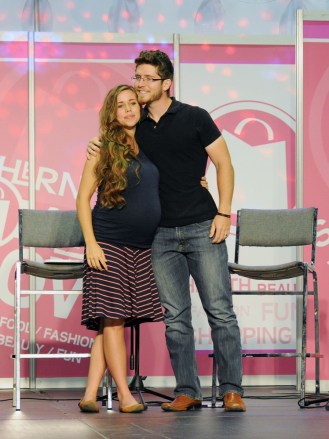
Jessa Duggar had planned to deliver her daughter in a birthing suite. But when her water broke at home and she went into labor two weeks early, her midwife was out of town. The Counting On star and husband Ben Seewald went with their backup plan of a home birth with a different midwife. After three hours of labor she gave birth to daughter Ivy Jane on their living room couch but the 26-year-old needed to be rushed to the hospital when she experienced severe bleeding. A top OB-GYN tells HollywoodLife.com EXCLUSIVELY how dangerous her situation was and that she’s lucky she didn’t need a blood transfusion.
“From her story she was bleeding after delivery and could not stop without medical intervention. This is called postpartum hemorrhage (after delivery hemorrhage). This is not an uncommon occurrence and can be very dangerous, even in a hospital setting,” Dr. Peter Weiss, MD, OBGYN and founder of Rodeo Drive Women’s Health Center in Beverly Hills tells us. The entire drama was filmed for the TLC special A Baby Girl For Jessa, which you can watch here.
“Tthis can be very dangerous and is considered a medical emergency, many times even needing a blood transfusion or worse requiring surgical intervention (meaning a hysterectomy). This is actually occurs more often after a 2nd or 3rd delivery. Think of a stretched out uterus having trouble contracting back down to size, this allow for a very rapid blood loss. This can also occur after a very long labor, or it can just happen,” he continues. Ivy is Jessa’s third child in three years time, as she has sons Spurgeon, 3, and Henry, 2, so she fits the category Dr. Weiss describes. Fortunately Jessa given Pitocin to stop the bleeding once she arrived at the hospital and luckily she didn’t need a blood transfusion following Ivy’s May 26 birth.
So could Jessa have bled to death? “In theory, the simple answer is yes. This is why it is still best to deliver in a hospital or birthing center and NOT at home,” Dr. Weiss explains. “Just because one gets away with something does not mean its smart. Example would be, not having your baby in a car seat driving cross country. If nothing happened, does it make what you did safe?” Great point!


